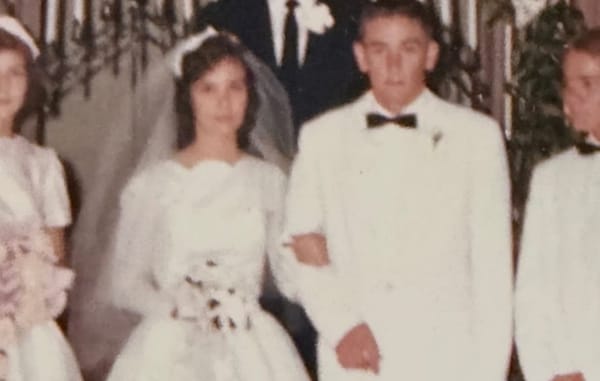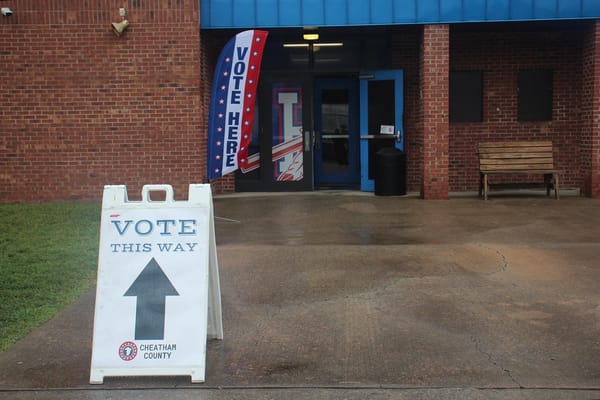And Then There's This... The Lady Vanishes

When it became evident around 2016 that my wife, Norma Morris, was descending into dementia and was at risk living alone in her Kingston Springs home, I abandoned my apartment in Nashville and moved in to be her principal caregiver. (We had lived separately but companionably for the previous 35 years. But that's another story.)
Being of an absurdly hopeful disposition, I decided not to accept Norma's illness as irreversible. Statistics told me it probably was, but why concede the battle when it was just getting started? Fortunately my job as a writer enabled me to do most of my work from home and keep a close eye on her.
From the outset, I looked to music for Norma's “therapy.” She and I both loved the pop songs of the 1940s and '50s. And she liked country music as well. Her last job before she fell ill was as an entertainment publicist, working for such artists as Ralph Stanley, Vince Gill, John Anderson, Porter Wagoner, Jim & Jesse, Steve Wariner, Merle Haggard and the band Exile. (She was sufficiently prominent in the music business that her death rated headlines in "Variety," "Billboard," "Music Row" and other trade journals.)
In the early stages of her affliction, she could still read and comprehend lyrics. So I would sit with her and we'd sing together from an iPad. I also hired a professional singer to come once a week to sing and chat with her. However our (and her) musical mainstay was listening each night at bedtime to Willie Nelson's "Stardust" album of standards from the so-called “American Songbook,” such gems as “Moonlight In Vermont,” “Georgia On My Mind” and “Someone To Watch Over Me.” We never grew tired of them, and through the kindness of his producer, Willie sent Norma a video “thank you” for her appreciation.
Eventually it occurred to me that people might enjoy and even benefit from learning what it was like living with and caring for an Alzheimer's patient — not after the disease had run its course but as it was progressing. So I began posting accounts on Facebook two or three times a week, each one taking the reader through a specific day. I did this from late 2019 through Norma's death on August 20, 2021. The responses to my posts were so encouraging that I collected them into the book "Stardust: An Alzheimer's Love Story." [Click here to purchase your own copy today.]
Some Gazette readers may have known Norma who had lived in Kingston Springs since 1995. Or they may have at least crossed paths with her at Pencils, Lawrence’s, El Jardin or Sonic, where she sometimes took the grandkids after having lectured them on the necessity of proper nutrition. On good days, her sense of humor glimmered until the end.
The point of all this back story is to tell Gazette readers that my next several "And Then There's This..." columns will be excerpts from "Stardust." Apart from any entertainment value they may have, I particularly hope they'll be useful and encouraging to those dealing with Alzheimer's – even if only as concerned onlookers.
Often people in the throes of grief will say, “Words fail me.” But they don't, really. Even stumbling, imprecise words throbbing with pain keep memories alive and convey love in a way tombstones can't. I didn't attend Norma's funeral (yet another story), but at our oldest daughter's request I put together these words to say on my behalf at her mother's grave:
“Norma was born to be the designated driver – for the world. If you needed a safe ride home or a project delivered on-time, you gave Norma the keys. Doing things well and smoothly was native to her soul. No drama for her. She did not shout, pout, sulk, curse, whine or gossip. She used her elegance like a can opener.
Hers was a mindset that scorned amateurism. Although she had once played piano well enough to be featured in college recitals, she would not touch a keyboard in later years — even for family entertainment — because if she couldn't play masterfully by her own exacting standards, she wouldn't play at all. It was that way with every skill she undertook.
This impressive array of prudence and precision might have added up to stuffiness in a lesser personality — but not in Norma's. Until her brain was invaded, it sparkled with insights and discoveries. She could read a room and spot the phonies while the rest of us were hanging up our coats and looking around for the bar. And as many who knew her soon discovered, she was a coiled quip waiting to strike.
As far as I know, the only madly impulsive thing Norma ever did was leave her first marriage when she was just 20 years old to marry me at a time when I had no money, no car, no driver's license, no position, no stature and no prospect of any greater achievement than making the rent. In a wild gamble, this divine creature — this perfect woman – risked everything on me. How could I not love her forever?”




